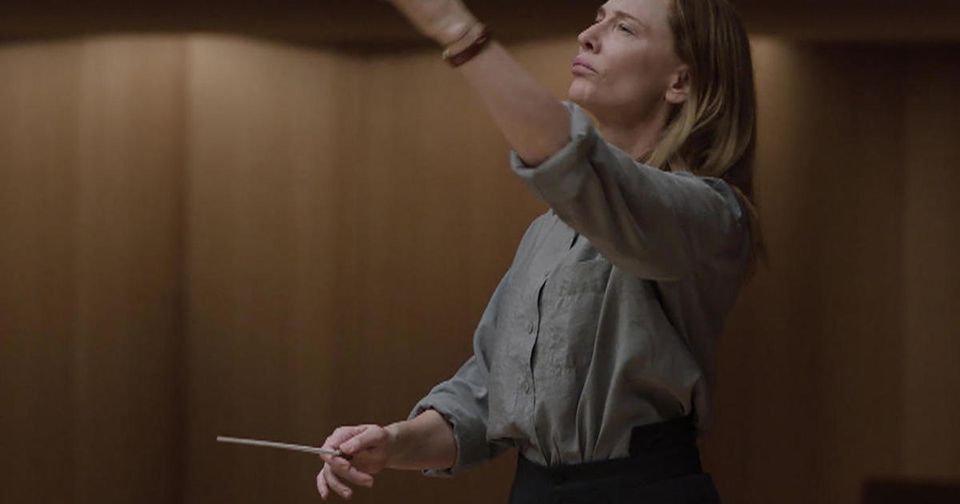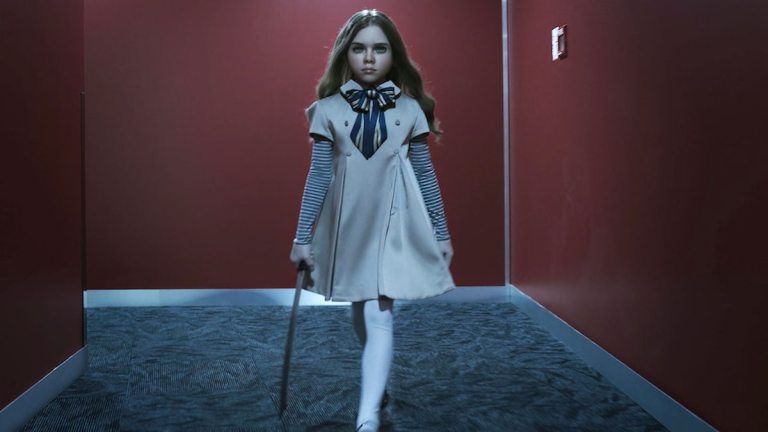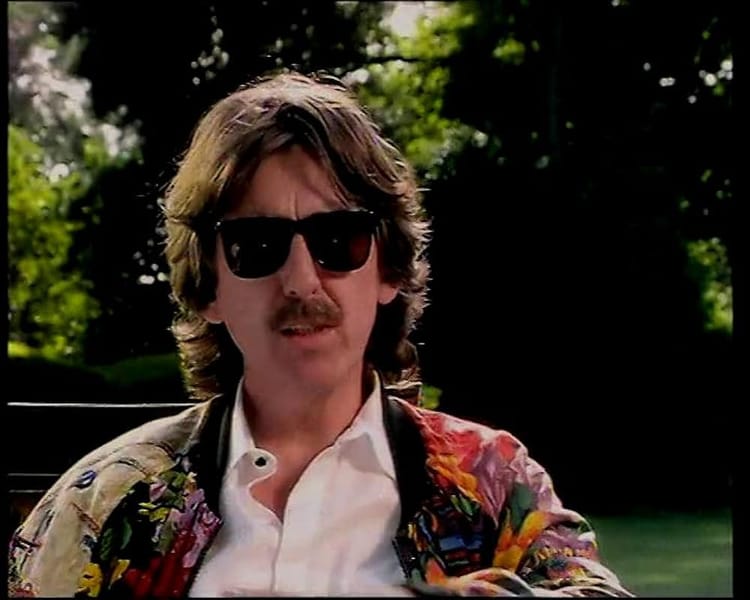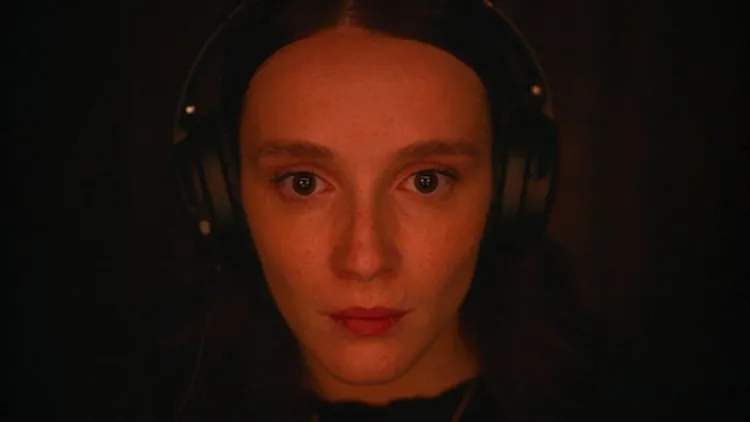TÁR! M3GAN! HELL YEAH!

For all her apparent pride in being chameleonic - acting against herself in Coffee & Cigarettes, playing 13 roles in Manifesto - all my favorite Cate Blanchett performances are variations on one archetype: an extraordinarily gifted person whose brilliance hasn’t spared them from mistakes and consequences. A bonafide backwoods psychic who can still be duped in Sam Raimi’s The Gift. A once revolutionary architect who’s rationalized away her PTSD for decades in Richard Linklater’s Where’d You Go Bernadette? The most acclaimed performance artist of her generation, still haunted by her indifferent, exploitive ex in the Documentary Now! episode "Waiting For The Artist." Katherine Hepburn in The Aviator. Seconds in to the trailer for Tár - Cate Blanchett as a tempestuous, troubled classical conductor, saints be praised - I knew this would be...My Shit.

And it was! Though put off by the opening credit sequence (why couldn't we thank the MTA at the end?) it didn’t take me long to get that Todd Field was setting the pace (like a conductor, see?), establishing the patience required for the nearly three hours of film that follows. Once the plot was underway, I didn’t feel that length any more than I do when superheroes go searching for Infinity Stones. But rather than jump into the story, the opening sequences focus on establishing the milieu of Blanchett’s charismatic conductor Lydia Tár and the wealth of knowledge and inspiration Tár brings to her work.
At first, I didn’t think I’d be able to watch the film in one sitting. It may be a niche reaction, but seeing Cate Blanchett ruminate on what it means to interpret music had me sliding off my couch and whimpering “yasss queen,” fantasizing that she might do a one-woman show based on the essays of Ellen Willis. Directed by Todd Field of course, as the guy can stage and edit a goddamn New Yorker Q&A so it’s as thrilling as a sports doc.
Tár is the kind of person who spouts information and ideas so effusively that the words she uses in a passing aside would be worthy of an essay all their own. She can’t even let someone say “atonal” without adding many multisyllabic words of nuance. The contrast between the banal ass-kissing of the Q&A and the direct challenge faced in a Juilliard classroom afterwards establishes she’s equally formidable in both environments. A stuffed shirt answering his own question hardly keeps her from being quotable. Asked by a student to concede the antiquity of white male Eurocentric classical orthodoxy, she calmly undermines the student’s conceits to the point that they’re the one left hissing hate speech.
But where all too many established directors would stage her trumping a young leftie as simply a win for the titular genius authority figure, Field and Blanchett are establishing a value system that Tár herself fails. She believes students only shortchange themselves by refusing to appreciate art from morally dubious figures and old schools of thought; by reducing creators to their identity, you yourself invite the same reduction. But soon we see how she’s abused power to reduce others, exploiting situations to preserve the illusion of objectivity, outright asserting her authority when necessary. The movie does a terrific job of not overstating her crimes without absolving her, either. She’s not some Trump/Weinstein-style destructive narcissist, so desperate for affirmation they’ll viciously abuse anyone who frustrates them in their quest. She’s simply too skilled at, and comfortable with, manipulating others to avoid collateral damage. And she's mentally protected herself from recognizing the pain she's caused.

While I haven’t seen Field’s In The Bedroom, I remember finding 2006's Little Children affecting but lurid. There was a banal, melodramatic American Beauty quality to its portrait of suburbanites in crisis. I’m not sure what he’s been doing for the many years since, but tonally Tár feels positively influenced by Kenneth Lonergan (a master of finding the human drama inherent in business & legal meetings) and, oddly enough, horror movies. Not only do we get multiple spooky dream sequences and Blanchett wandering a mysterious, dilapidated building, we even get one of those “feet appearing underneath a bathroom stall” shots like in the Scream series. And as with the best horror movies about cursed characters, Tár never lets you forget how they asked for their fate, even as we see how terrifying they find it.
Things do get a bit campy at the end - rare is the movie where a character alone, drunk and scream-singing with an accordion isn’t their emotional low. Closing revelations about where she's from and where she winds up are arguably a bit much. The coda reminded me of Christopher Guest’s For Your Consideration, where we’re meant to believe loudly promoted Oscar hopefuls can wind up streetside sign-spinners within a year (Tár's supposed to be a damn EGOT. Let’s be real about her lifelong career prospects). But the intent was sound, if not the details. I think Field wanted to make sure the audience understood vulnerable narcissists have roots, and that - if you truly believe the art should be separated from the artist - you have to keep making art even if the world decides you’re not worthy of the Artist treatment. Tár isn’t as funny a portrait of the cancel-worthy as Barbarian, but it’s grander, richer and maybe even more gothic. And did I mention Cate Blanchett speaks assertively about music theory in it?

Though I planned a hamtastic Peacock-exclusive double-bill, I wound up watching Tár the morning after I saw M3GAN, not realizing how long the former was, and how much time I’d need to spend going “yoooo!!!” after the latter. While I don’t think James Wan is a master filmmaker, the dude who went from Saw to The Conjuring to Aquaman has a strong sense of how to get asses in seats and glad they showed up. Though he only has a story credit here (which he might earn with a one-page bullet point list of things that would be dope to put in your script), he also picked the director and did his brand real proud with this one. Where the previous year’s Malignant (also written by Akela Cooper) felt like an exercise to see just how little of a movie has to be cool to demand a sequel, M3GAN let’s us see how endlessly badass its monster is from early on. After years of Hollywood trying to make us think CGI is spooky, here’s a threat to humanity that’s proudly computer generated. Chucky meets The Terminator meets Regina George. I mean…yooooooo!!!!
Violet McGraw from The Haunting Of Hill House is great as the sad little girl M3GAN is programmed to be everything for, and Allison Williams is perfectly cast as the self-involved aunt smart enough to create next-level AI but too up her own ass to use it to do anything but nanny. Not since Ben Affleck in Gone Girl has someone on screen been so easy for an audience to watch go through hell, but not want to see die. Should their characters be punished for vanity & hubris? Yes. Yes. Agony. Lifelong embarrassment. Make them squirm. But it’s not a capital crime, so you’d still go “awww” if they didn’t walk away from the chaos.
I saw the “unrated” version, which adds a little more gore and swearing to the theatrical edit, but director Gerard Johnstone has noted that Drag Me To Hell was PG-13, which means he knows teens can go see the sickest shit as long as you curb the profanity and bloodletting. And this shit is so conceptually sick you might not even notice where the excisable profanity and bloodletting was.




